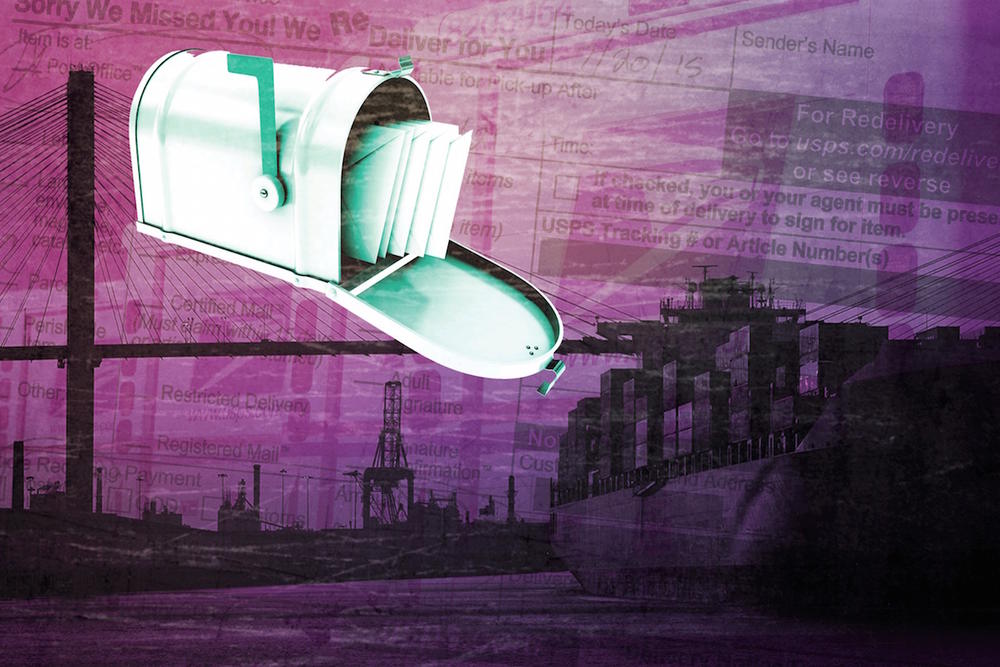Section Branding
Header Content
Gate Of 100 Sorrows: Following And Fighting The Flow Of Opiates
Primary Content
Georgia is a major distribution hub for everything from food and cars to raw materials like cotton and turpentine. And, increasingly, illegal drugs, including opioids. The interstates and port that attract big business to the state also attracts drug traffickers.
Dan Salter is the special agent in charge of the Atlanta field office of the U.S. Drug Enforcement Administration. He says that right now they're particularly concerned about fake Percocet pills that caused a spike of recent overdoses in Georgia and across the country.
Our conversation with Dan Salter.
“What you have is synthetically-made opiates, or fentanyl, made in China primarily, and shipped to the United States. And then it’s pressed into pseudo-Percocet drugs that are common on the market. What you’re seeing often times with these overdoses caused by what would be pseudo or fake pain medicine made by – they’re not even chemists. These are drug traffickers pressing pills to hurt people.”
What are other major challenges facing law enforcement as you deal with the opiate problem?
“Well, four out of five heroin users start with opiate-based pain medicine, which is frightening. I see and hear stories all the time where individuals are addicted to pain medicine, ultimately moving toward heroin, which is available and cheaper. The cause and concern for us is that there’s so much abuse. You know, there’s estimated between 125 and 150 people today will die from a drug overdose and primarily all of those will be some type of opiate-based heroin or fentanyl. So it’s a grave concern for us.”
How is Georgia playing a role in the distribution of opioids in the country? Are our interstates and our port involved?
“Everything’s in play. And I think what you have to be careful about is it’s not just opiates. We’ve graduated past opiates and we’re into pseudo or fake opiates and heroin. So you can’t mention opiates without mentioning fentanyl, and you can’t mention fentanyl without mentioning heroin. Our roadways are – there’s a direct link between the Mexican cartels in the southwest border link directly to the Atlanta area. We have every major drug trafficking cartel known here in Atlanta. Obviously, from Atlanta it’s dispersed south and east and it makes for a real easy access to the east coast. That’s something that we see commonly now, unfortunately.”
How about the port here in Savannah and down in Brunswick? Is that how opiates and drugs are coming into the country as well?
“Any way these traffickers can get it into the U.S., they’re going to use those means. In your ports we work with our federal partners there and we’ve had a lot of success. The Customs and Border Protection are primarily responsible for those ports and we do work with them daily. And we’ve been successful so, you can use your imagination and these cartels are using that same imagination whether it’s through the roadways, through the air, or through the ports… This drug is unlike anything I’ve seen. When you’re looking at up to 150 people a day dying of a drug overdose, we need all hands on deck.”
I’ve seen that some states are limiting the initial prescription for opiate-based pain killers. Do you think that’s something that might be effective?
“Absolutely. And DEA nationwide, we’re working with the American Medical Association and doctors. We have to work with pharmacists, we have to work with our veterinarians and anybody that can prescribe these medicines.”
Is that a problem, veterinarians are prescribing these drugs?
“Absolutely. It’s anybody that has the ability to prescribe medicine could potentially abuse that authority. The majority – if not 99 percent of them are here to help us get better. But that small percent of them that are not, we’re targeting. “

